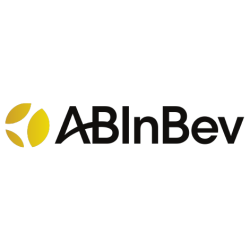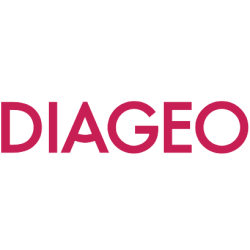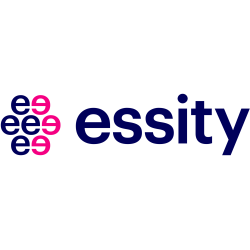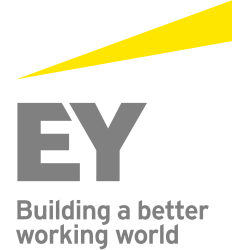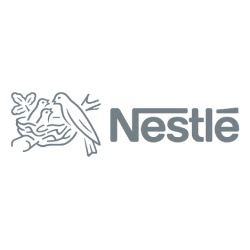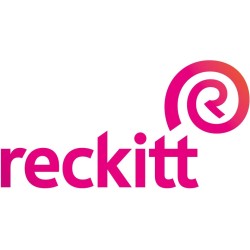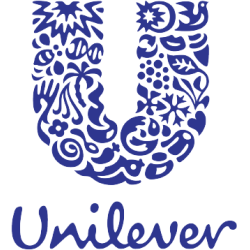DEI Charter for Change
WFA's Inclusive Marketing Community presents:
The Global DEI Charter for Change
Marketing needs to change. One in seven say they would consider leaving their company and the industry based on a lack of diversity and inclusion. The results of the WFA-led Global DEI Census show we still have work to do. We call on leaders at all levels in marketing organisations and their agency partners to build an industry of true inclusion, one that measures its achievements and is open when it falls short. From our learnings from the global census, ran in 27 countries around the world, as diverse as Japan, South Africa, Malaysia and Brazil, we strongly recommend the following as the minimum requirements for all organisations, globally.
Download the Charter
Find out more
Actions on leadership

Action 1: Create a diverse leadership team

Action 2: Understand and democratise your companies data

Action 3: Create transparent policies and publish them
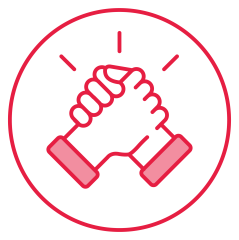
Action 4: Create psychological safety and support
Actions around protected characteristics

Age

Caregiving

Gender

Race and ethnicity

Disability and neurodivergence

Sexual orientation and gender identity

Mental health

Learn how to get involved
 Create a diverse leadership team
Create a diverse leadership team
Leadership must reflect the diversity of our global consumers and the richness of our intersectional identities.
Where groups are not represented, leadership must have strategies for short-term progress and beyond.
Investment in sponsorship schemes, reverse mentorship programmes and smart succession planning can create career growth for those in the organisation and attract new diverse leaders as well.
 Understand and democratise your company's data
Understand and democratise your company's data
Leaders need to understand the data of inclusion: who is being promoted at every level and what barriers are holding particular groups back.
Measuring what you treasure is essential, however beware of bias in existing systems.
Guidance on effective change can also come via continuous feedback, listening sessions and/or employee networks.
Data should be accessible to everyone internally as part of a commitment to tackling the issues.
 Create transparent policies and publish them
Create transparent policies and publish them
Organisations must strengthen anti-discrimination policies and be transparent in policies, expectations of leaders and employees, and how to escalate situations when needed.
These approaches must consider the nuances of multiple identities and ensure policies are accessible and widely shared.
Ensuring they are being implemented is equally critical.
 Create psychological safety and support
Create psychological safety and support
Genuinely safe spaces allow employees to speak up candidly.
Companies must invest in qualified facilitation for these spaces and have clear rules of engagement.
Middle management is key, so provide training and continual support on managing diversity and running inclusive teams.
 Age
Age
Why? More than a quarter of respondents agreed that their company does not treat all employees equally when it comes to age.
Key actions: Providing continued coaching, mentoring, and career development for experienced and younger employees alike shows the organization is committed to supporting and retaining all forms of talent, irrespective of age.
Idea to steal: Consider running reverse mentoring programmes as a way of connecting senior leaders with the next generation of talent. This empowers more junior employees to develop confidence and leadership skills, while at the same time allowing senior management to develop new skills sets.
How others are tackling the challenges:
-
Beyond reverse mentoring: avoiding age-bias in recruitment
The creative marketing agency RAPP mentorship program to help bridge the gaps between older and younger generations.
Read more about "Beyond reverse mentoring: avoiding age-bias in recruitment"
-
Getting support to overcome ageism in the workplace
Greys Matter was established to support businesses in their journey to become fully Inclusive and Fair.
Read more about "Getting support to overcome ageism in the workplace"
-
Raising awareness and understanding on menopause
Diageo has launched its first ever global Menopause Guidelines ‘Thriving Through Menopause’.
Read more about "Raising awareness and understanding on menopause"
 Caregiving
Caregiving
Why? More than a quarter of respondents agreed that their company does not treat all employees equally when it comes to their caregiving responsibilities, rising to 40% among female respondents.
Key actions: Ensuring that decision-maker roles include leaders with caregiving responsibilities – for the young, but also for the elderly and the sick – can both serve as a positive example to others and encourage the adoption of flexible policies. Adding emergency caregiver support to employer benefits plans can actively support those with caregiving responsibilities.
Idea to steal: Companies should think of adopting policies that benefit parents and employees providing care to aging or sick relatives alike. Research showed that the focus of family-friendly policies favours parents over other caregivers. Failing to narrow that gap could potentially push some employees out of the workforce.
 Gender
Gender
Why? Women reported a low sense of belonging and more negative behaviours at work: a third said they felt undervalued and less than half agreed that management do not discriminate when it comes to hiring or career advancements.
Key action: Businesses need to understand and improve women’s lived experiences. Support plans need to be tailored to the cultural differences and employment conditions in each market, so that women feel valued and provided with sufficient support to progress their careers.
Idea to steal: The Diageo-led #CreativeComeback is a global creative ‘returners’ scheme to support women, non-binary and gender non-conforming creatives as they return to work after a career break of at least 12 months. Read more.
 Race and ethnicity
Race and ethnicity
Why? In 15 of the 21 markets where race and ethnicity were measured, minorities were less likely to agree that organisations were actively taking steps to be more diverse and inclusive as were their majority counterparts.
Key action: Creating programs and spaces specifically designed to support and empower ethnic minorities helps show commitment and progress to populations that usually report poorer lived experiences.
Idea to steal: L’AACC launched tailor-made training program offering 17 young people, aged 18 to 25, from priority neighbourhoods in Paris, to develop the skills necessary to train for creative jobs in advertising agencies. Read more
How others are tackling the challenges:
-
Inclusive marketing
Scared to speak up about DEI or sustainability in the current environment? Don’t be: fortune favours the bold
I’ve fumbled two big opportunities to get rich quick. The first was when I wrote a feature for the Guardian about Bitcoin when it cost a mere $32 and I DIDN’T BUY ANY. The second was in 2016 when I launched a satirical website called Rent-a-Minority. My “Uber for diversity” let companies hire a minority on-demand when they needed to look inclusive. It was a commentary on superficial corporate DEI efforts. Reader, I got genuine enquiries from big businesses about my service. I could have made tons of money if I’d turned my joke service into a real one.
Read more about "Scared to speak up about DEI or sustainability in the current environment? Don’t be: fortune favours the bold"
-
Creating programmes dedicated to specific ethnic minorities
Sodexo Canada has been recognized by the Canadian Council for Aboriginal Business (CCAB) as a certified Progressive Aboriginal Relations (PAR) program company.
Read more about "Creating programmes dedicated to specific ethnic minorities"
-
Educating all on racial inequity and bias
Walmart US works with the Racial Equity Institute (REI) to offer training that examines the history of race in America as well as systemic racial inequity in its institutional and structural forms.
Read more about "Educating all on racial inequity and bias"
 Disability and neurodivergence
Disability and neurodivergence
Why? People with disabilities are under-represented in the industry and tend to report a lower sense of belonging.
Key actions: Businesses should prioritise actions which help normalise and improve understanding of all forms of disability. Accessibility needs must be discovered and accommodated as part of the employee onboarding experience.
How others are tackling the challenges:
-
Challenging the stigma around disability
Barclay’s This is Me initiative challenges the stigma around disability and mental health in the workplace.
Read more about "Challenging the stigma around disability"
-
Setting goals and targets on Disability Inclusion
Over 15% of the global population live with a disability, but they are still the largest under-represented group in the world. To address this, Unilever has committed to building an organisation that is a beacon of diversity and inclusion by setting a global goal to have 5% of their workforce represented by people with a disability by 2025, as well as becoming the no.1 employer of choice for people with a disability.
Read more about "Setting goals and targets on Disability Inclusion"
 Sexual orientation and gender identity
Sexual orientation and gender identity
Why? 35% of LGBTQ+ respondents reported feeling consistently anxious in their jobs compared to 27% of non-LGBTQIA+ respondents.
Key actions: Companies must have policies in place to protect but also support LBGTQ+ employees. Benefits including pay, bonuses, parental leave, health insurance should be explicitly available to same-sex couples. Non-binary identifying employees should have their chosen identity recognised.
Idea to steal: Reach out to LGBTQ+ industry advocacy organisations, such as GLAAD (USA) and Outvertising (UK), which employer resources and training, including Ally and Role Model training.
 Mental health
Mental health
Why? 7% of respondents globally reported a long-term health condition and of these, 71% said they related to mental health. Moreover, a third of all respondents reported feeling stressed and anxious at work.
Key action: Providing and continually promoting mental health benefits so that they are accessible and top of mind is important. People managers should be trained in how to respond to mental health issues and have supportive discussions around mental health with employees.
Idea to steal: In 2021, Publicis Groupe rebranded Personal Leave as Wellbeing Leave, in recognition that when people get sick, it can be for physical or mental health reasons. Read more here.
Contributors
The Global DEI Charter for Change was developed with the input of members of the WFA Inclusive Marketing Community and other industry organisations, such as VoxComm, EACA and Creative Equals. To all those who shared their experience, learnings and insights with us, we are incredibly grateful.
Find out more about The Global DEI Census.
Participating organisations
Join the community
Stay in touch and participate in WFA's inclusive marketing work.
Join now
 Create a diverse leadership team
Create a diverse leadership team











